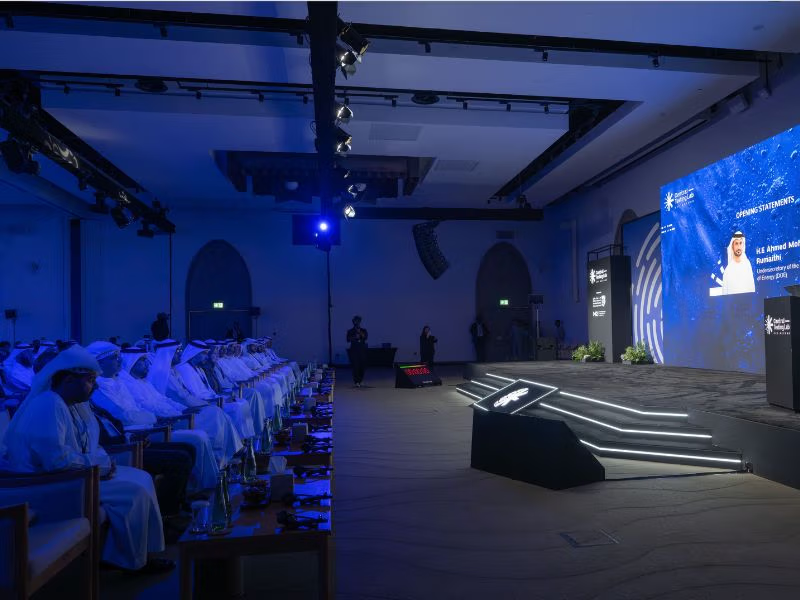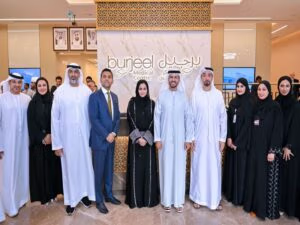The second edition of the Water Quality Forum (WQF) 2025 opened today in Abu Dhabi under the theme “Innovating for Resilience: Water Quality in a Changing World.” The forum brings together key stakeholders in the water sector to drive innovation, resilience, and safety in water management across the region.
Organised by M42 Environmental Sciences in partnership with the Abu Dhabi Quality and Conformity Council (ADQCC), the event is being held at Erth Hotel and serves as a platform for dialogue and collaboration between utilities, regulators, municipalities, academia, and private sector leaders.
In his opening remarks, Albarah El-Khani, Chief Operating Officer of M42 Integrated Healthcare Solutions, highlighted the UAE’s strategic approach to water as an integral part of national health and sustainability efforts.
“The UAE links water directly to health, considering wastewater as a source of data and an early warning system,” he said.
El-Khani explained that the country is leveraging advanced laboratories and artificial intelligence to detect pathogens and pollutants before they spread, enabling a shift from reactive to preventive water management.
“This approach shifts water management from reaction to prevention,” he said.
“Innovation is central to addressing challenges,” he added, pointing to the role of AI and advanced analytics in predicting pollution and risks, monitoring systems in real time, and using wastewater data and genomics to safeguard communities.
He further emphasised the importance of strong governance and scientific standards in building sustainable and trustworthy water systems.
The forum also featured remarks from Ahmed Mohammed Al Rumaithi, Under-Secretary of the Abu Dhabi Department of Energy, who outlined the UAE’s long-term strategy for sustainable water management.
“The UAE’s water management strategy aims to ensure a sustainable future for coming generations,” he said.
Al Rumaithi underlined the nation’s commitment to environmental protection and the preservation of natural resources, which are central to its wider sustainability goals.
He highlighted the Mohamed bin Zayed Water Initiative as a key vehicle for innovation, collaboration, and investment in the water sector.
“This initiative focuses on fostering innovation, investment and collaboration to provide the best global solutions in the water sector, while raising awareness of water security among governments, scientific communities and consumers,” he said.
Al Rumaithi also noted the importance of the interconnection between water and energy systems, urging more effective use of this linkage to improve sustainability.
Abu Dhabi, he said, is already leading by example, being home to the world’s largest reverse osmosis desalination plant, which produces more than 90,000 cubic metres of water daily.
“This achievement is only the beginning,” he noted, adding that reverse osmosis capacity increased by 740% between 2020 and 2023, marking a major shift from traditional thermal desalination methods.
He also spotlighted the Department’s recycled water use policy, which since its launch in 2019 has raised the utilisation rate to 73% by 2023. Looking ahead, Abu Dhabi is planning to build a strategic underground water reservoir to ensure supply during emergencies and shocks.
Al Rumaithi further shared that the Department’s water and electricity efficiency strategy, introduced in 2019, had achieved nearly one-third of its 2030 targets by 2025.
“This success is due to cooperation between the Department, operators, government entities and the private sector, which enabled the saving of more than 306 million cubic metres of water from the network alone,” he said.
The Water Quality Forum 2025 continues to highlight the UAE’s leadership in water innovation, pushing for smarter systems and stronger collaboration to address the pressing water challenges of a rapidly changing world.





